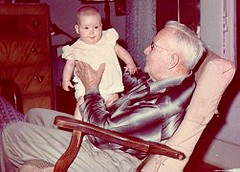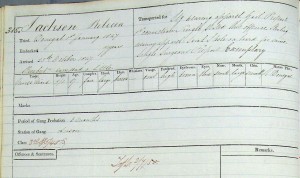
![]() Photo Credit: Miss Shari via Compfight
Photo Credit: Miss Shari via Compfight
In the family history course this week, Dianne Snowden spoke to us about how to conduct our research. Here are the notes I made while listening to the video. I have also included a few links to sites on the net which might be helpful.
Remember to follow the basic principles for family history
Steps for conducting your research – Elwell[1]
- Write down what you know
- Decide what you want to learn
- Choose a record or source of info
- Obtain and search the record
- Use and record what you have learned
Look for online finding aids to help with your research. Familysearch has many aids for helping with handwriting
- Handwriting Helps
- Helps for Reading Older Handwriting
- FamilySearch Category: Handwriting
- Online helps for reading Old English Handwriting
Have an aim for each research task
- What do you hope to find out?
- Where are you going to look? – Repositories and records – Primary/secondary sources
Document your sources
- Any statement of fact must have its own source
- Sources will record location of the fact and also record details that might impact your evaluation of the fact
Tips for researching
- When searching, often better to put in less information
- Too many results, then refine search by adding more words
- Spellings in early records is flexible
- Names can be spelt many different ways
- Names can be changed
- Reading difficult handwriting, compare with sequence of letters you know. Familysearch online help
- Never assume family relationship with person of same name
- Many records have similar info eg birth registration/church records, address in electoral roll/post office directory
- Children registered in Tasmania with f or m
Abbreviations
Start with Chapman Codes but also keep your own list
Once you have info, you must then evaluate it.
- Original source material generally more reliable
- What processing has the source material undergone – eg transcribing which might not be accurate, re-copied from tree to tree
- Truthfulness of record will depend on purpose and motivation of creators eg ages on marriage certificates, obituaries especially to cover convict records
- Most reliable informants have first hand knowledge of events
- Veracity and skill of record’s creator will have shaped content
- Timeliness adds to a document’s credibility
- All known records should be used
- Case never closed on a genealogical conclusion.
When searching don’t just rely on Google as your search engine. You can also use customised search engines – often Google based. Try out some of these others: I put in Francis Colgrave (my gggrandfather) and found many resources I had never seen before
Cyndislist which has search engines for many countries of the world
Genealogy search help based on Google
About.com has nine search engines to suggest
Digital trends gives some great sites to search
My readers: Which search engine or genealogy site have you used that gave lots of great information?
[1] Barry J Elwell Family Treasures: 15 Lessons, Tips, and Tricks for Discovering Your Family (Cedar Fort Publishing, 2012)

